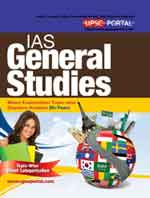(HOT) UPSC Current Affairs 2025 PDF
NEW! The Gist (NOV-2025) | E-BOOKS
(Sample Chapters) IAS Mains: General Studies
(Sample Chapters) IAS Mains: General Studies
The Revolt of 1857
1. ‘What began as a fight for religion ended as a war of independence, for there is not the slightest doubt that the rebels wanted to get rid of the alien government and restore the old order of which the kind of Delhi was the rightful representative’? Do you support this viewpoint? (99/I/2a/15)
2. What administrative changes were introduced in India after 1858? What were the objectives of these changes? (01/I/1b/30)
Rise of Indian Nationalism
1. Give a critical account of the Ramakrishna Mission with special reference to the role played by Swami Vivekananda. (90/I/3c/10)
2. Discuss the role of the Theosophical Society in the history of religious movement in India. (91/I/3c/10)
3. What were the contributions of the Arya Samaj to social and religious movements of India? (92/I/3c/10)
4. Discuss the various aspects of social legislation introduced by the East India Company in the first half of the nineteenth century. (95/I/2b/15)
5. ‘Swami Vivekananda might well be called the father of Indian nationalism’. Elucidate. (95/I/3c/10)
6. The name of Raja Ram Mohan Roy stands foremost in the field of religious and social reforms. Elucidate. (97/I/3b/10)
7. Assess the contributions of Ishwarchandra Vidyasagar to the making of modern India. (99/I/3a/10)
8. In what way did Ramakrishna infuse a new vigour and dynamism into Hinduism? (99/I/3b/10)
9. Characterise the main features of Indian Renaissance. (06/I/2c/15)
10. What was the character of socio-religious reforms in the 19th Century and how did they contribute to the national awakening in India? (250 words) (07/I/1a/30)
Congress Under Moderates and Extremists
1. Analyse briefly the contribution of religious reform movements to the growth of extremist nationalist movement. (89/I/3a/10)
2. Analyse the main differences between the approaches of Tilak and Gokhale on social and political issues. (About 150 words each). (93/I/2c/15)
3. “The Lucknow Pact of 1916 was signed without regard for its consequences.” Elucidate. (93/I/3c/10)
4. What were the contributions of the Moderates in the formative stage of the Indian National Congress? (94/I/3a/10)
5. Trace the emergence of Indian Nationalism till the foundation of the Indian National Congress. (95/I/2c/15)
6. What was Tilak’s contribution towards shaping the course of the nationalist movement in India? (96/I/3a/10)
7. Examine the causes and nature of extremism in Indian politics in the early part of the present century. (About 250 words) (97/I/1b/35)
8. How did economic nationalism mirror the work of the early nationalist leadership in India? (98/I/1b/35)
9. Why did the moderates lose appeal with the Indians and failed to elicit desired response from the British? (98/I/2a/15)


